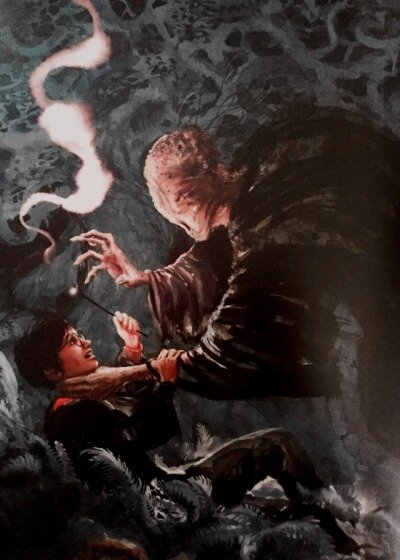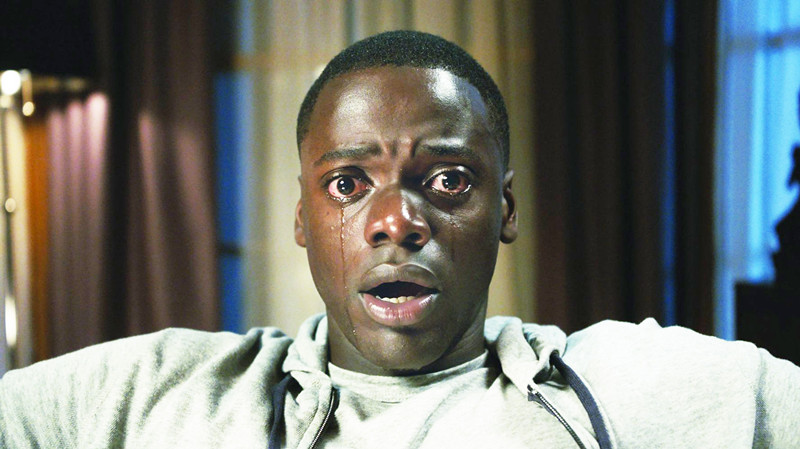As we went over how to explore the rhetorical dimension of narrative, and how many different audiences taking up the story differently, I was puzzled by the suggestion that narratives trick the actual reader into submitting to the narrative, so that the actual reader becomes the kind of reader who accepts all the roles the text asks the reader to play. This is the first step in the method I am applying to the book Slade House, by David Mitchell, a method demonstrated by James Seitz in his book chapter called “A Rhetoric of Reading.” That first step, for Seitz, is to attempt “to determine what kind of implied reader the text intends” (147).
The reason why I ended up so confused about it was because when I did read, I found it hard to identify with an audience. Though, that might actually be the point of his request, I might have become either a narrative audience or an authorial audience without even knowing it.
Luckily I have a better understanding of what the narrative audience, the audience that believes the events, as well as the authorial audience, the audience that questions the events. This is all thanks to how Angelina, my reading group leader and I worked together on publishing her blog post.

From what I understand, the authorial audience “are often forced to call upon the ‘best part’ of ourselves [the reader] when we join the authorial audience” (Rabinowitz, 6). The authorial audience is the type of audience that is capable of getting the author catching all the references, moves, tricks the author has built into the narrative. The authorial audience already knows about the work of which they are reading. Seeing as how I cannot speak for the author, as I do not know what David Mitchell was expecting when people would read his text. I could try to assume that he would expect me to give the typical reactions people give when reacting to horror, as that is the genre of Slade House. However, at the end of the day, that is merely an assumption. What makes this interesting is that when I think of people who react to horror stories, I think they tend to correlate more with the narrative audience.
Looking over the blog posts and my notes, they always say that the narrative audience believes that the events in the story actually happen. In the words of Rabinowitz, it is generally created when “the narrator of the novel (implicit or explicit) is generally an imitation of the author. He [the author] writes for an imitation audience” (127). This, in my opinion, can be interpreted in multiple ways. The simplest of them all would be to say that it is an audience that believes that Jonah and Norah are real, and that there are actually two wizards sucking the souls out of unknowing citizens.
Another way this type of audience could be interpreted would be that they represent the characters or people that exist within the story. They would elicit the reactions of someone who exists in the world of the story as the events unfold. They believe that the events are actually happening, because in their case, the events would actually be happening. I believe it mostly has to do with why I want to connect it with the typical horror genre audience. That has to do with the idea that when one looks at a story, in the case of Slade House, reading the story; a reader will typically insert themselves into the world, pretending as if they actually exist in the world as one of the characters. What connects this to the horror genre audience is because when looking at a horror story, the characters are thrust into very dangerous and decisive situations that elicits curiosity out of the audience. Someone within the audience would typically ask “What would I do if I were in that situation?” With that, they have to pretend as if the events of the story are actually happening and they react to the story from there.

While it is a very fun way of interacting with the horror genre, I found myself having a hard time with becoming that audience member. That was mostly due to the fact that the question was relatively answered for me. In a sense, I could be considered the resistant reader, in the words of James Seitz “If the rhetoric is defined broadly as the relationship one assumes between oneself and the addressed, then the reader’s response to the text constitutes a rhetorical act-an inscription, as it were, to the reading” (142). Maybe he is right about me, maybe I am just making assumptions with the rhetorical dimension of the narrative. That could be what makes it more difficult for me to become one of the audience members.
It wouldn’t matter which character I could relate to the first few parts as they were all equally unprepared. While it is true that those in the future parts would know that the characters before did disappear, that is all they would know. They didn’t know that magic exists, or that there were two wizards sucking the souls out of victims every nine years, and they certainly would not be prepared to face the wizards in a head-on conflict.
With the way the twins operated, they would use some form of telepathy to enter the minds of their victims, and find their weaknesses. What is it that could be used to manipulate them in the best way possible? For one, it was to pretend to be a friend to help a lonely boy, for another, it would be to seduce him and have him follow his desires into the lion’s den. Another detail that should be pointed out that the victims were all very different people from one another. One was a lonely child, another was a hardened detective, another being a team of ghost hunters. They would all have very different beliefs of the world around them as well as different levels of intellect. One of them, hardened Detective Gordon in particular, would be the perfect character to figure out how to deal with the twins and their soul sucking ways. However, that didn’t happen, he was rendered helpless just like every other victim. Despite the fact that he would have better deduction and problem-solving skills than any other character “‘ordinarily’—I’d go back to my car, radio for backup and warrants and return in a couple of hours, but in this mad bugger’s scenario, where I may— may —have just shagged a thirty-one-year-old killer-slash-abductress-slash-whatever-the-fuck-she-is, I’d rather get Rita Bishop safely away first and call in a Code 10 to Slade House after” (Mitchell, 47). That all goes back to the fact that none of the victims even knew that magic exists in their world. While he did find the fox pin, a weapon that can be used to hurt the twins, that wouldn’t be used until decades later when the twins inevitably fall to someone who knows that magic exists.

In an attempt to become the narrative audience, I feel that I have to pretend for a moment that the events of the story are happening to me. I would supposedly be entering the Slade House, and I have to figure out how it wouldn’t end well for me. The reason why I would be one of the victims is because in order to properly assess what would happen if I were thrust into the situation, I would have to go into it just like every other character in the world. That being the fact that if I would have any knowledge of the events of the story, it would be that characters disappeared in the Slade House and that would be it. I know nothing about the magic of the world or how it works. I can only see how those who do know of magic use it. With that, I would just end up like any of the other victims with the twins finding a way to manipulate me into getting close to them so that they can render me helpless and suck out my soul.
If I had to escape this situation that I would have foolishly put myself into, I would have to defeat the twins. To defeat the twins, not only would I need to know to use the fox pin to harm them, I would have to figure out what they are doing in the first place, beat them at their own game, and find a way to resist their magic. I would have to be Dr. Marinus in the final act. She knows what Norah and Jonah are up to, she knows how to counter their strategy, and she knows what they have been up to. She plays the for a fiddle and beats them at their own game; “‘Uh…could I just ask a question?’ asks Marinus. ‘Fire away,’ says Jonah, not taking his eyes off his iPhone. ‘Why in the eleven thousand and eleven names of God would I oblige two parasitic soul-slayers by imbibing their poison?’” (139). However, unfortunately for me, I am not as knowledgeable, manipulative, or as insightful as Dr. Marinus.
To give myself as much leeway as possible, let’s pretend that I figure out that the illusions are there to manipulate me and that I shouldn’t imbibe their liquid. They are still two powerful magic users while I am still just a normal guy. While I can use the fox pin to fight them, I can still only use it on one of them at a time as it is just a pin. This doesn’t even take what my emotional state would be into account, as a situation like this would be as stressful as trying to defuse a bomb, one mistake and I am just another victim. Given the fact that I know nothing about how their magic works outside of what I see, I am bound to make a mistake.

But this all has me going back to thinking about how I would be tricked into becoming an audience member. How I would be played like a fiddle. With the way I put myself into that situation, one could say that I already was tricked and I didn’t even know it. Perhaps this is another tragedy of the resistant reader. As Seitz would say, “a text would be in one regard represent the death of one’s own ego; to completely resist is to close the book permanently” (151). Could me seeing myself as just another victim simply be the death of my supposed ego? It is possible, however the real tragedy is that I still do not completely understand if my ego was affected from this. After all, to come to the conclusion that I would end up becoming just another victim, I would have to think about what I would do if I were in the Slade House myself. While I do not believe that the events of the story had actually happened, I had to pretend a if they were actually happening to come to a logical conclusion of what would happen to me if I were in that situation.
I would argue that I would have been tricked into being an authorial audience member as well. Seeing as how I still find myself confused as to how the magic works. I do not understand about why the fox pin is the only thing that a normal person can use to harm the twins. It seems to me like its any other type of pin, and it just happened to have been in the same room as the twins. I also do not understand the idea behind the concept of the twins either, mostly it has to do with the final chapter. The woman that kills the twins, Dr. Marinus is an immortal herself. Yet she does the ethical method of immortality through reincarnation while Norah and Jonah use soul sucking to stay alive. It seems to me that the unethical practice of soul sucking is only going to attract unwanted attention such as Dr. Marinus. Not only that, but it seems like it is more of a chore than reincarnation as well. While I as an audience member do not know what the process is for reincarnation for the world of Slade House, the fact that it is ethical should mean that it should be easier to do than waiting for a victim to waltz into the house every nine years to suck their soul out. In fact, soul sucking seems like a chore to me, and it’s evil, so I would see no point in doing it when there is reincarnation. Maybe I simply don’t see the bigger picture and that maybe soul sucking is less of a chore than reincarnation. The problem however begins when the text doesn’t show one magic trick being more difficult than the other, it is just left to the reader’s imagination.
Could it be possible that I was tricked into being a member of both types of audiences? I would say it is possible, but that then comes with the question of which type of audience member am I now? As I find myself going through the thought process of what would happen if I were in the situation and why I think certain aspects of the story are silly to me. With that, the only answer I can come to is both.

I agree that the narration was confusing to know as readers can not be for sure who exactly was narrating the chapters. Although every chapter has a different victims’ perception, even the antagonist, Norah, had her account within the last chapter. But the story is filled with ghosts and magic, which might make the narrator flimsy. That is why readers should question the narrative, and as I did, I was able to read along with each individual and find out that the twins, Jonah and Norah, possess powers. That was important for the twins could have been the narrators all along. For example, in chapter two, Detective Gordon was captured and held frozen in the attic of Slade House. He was asking questions in his head and praying to God, which prompted the twins to answer him, and Jonah to toy with Gordon by having him pray as if he would be set free (Mitchell, pg. 80-81). Therefore, how can the reader not ask who exactly was telling the story as it could be the twins controlling the victims themselves or another probable cause? That is up for debate!
LikeLike
Just like you and paige said, I did find it confusing to know as readers who was narrating the chapters, you almost thought am I a new character in this book by narrating what is happening to others? As you go into it narrative audience is, the audience that believes the events, as well as the authorial audience, the audience that questions the events. Which makes me question who am I too, as I read all these events happening I almost question every single event. But I do come to realize that the twins are more than just twins. They have the power and control over everyone. Were we the twins as they navigated us through slade house? or were we one of the twins?The fact that we dont know how powerful they actually are that they can be controlling us and what we think. But you open my mind to wonder, why a fox pin? Out of all types of pins, what makes a fox pin so dangerous to the twins.
LikeLike
There’s an interesting conversation to have about being a submissive reader in particular. The novel opens and immediately the reader is with Nathan. Written in first person, this is one of the closest ways to blur the lines between the text and the reader. You could go as far as to say that the reader IS the newest engifted with each chapter. At the time, we don’t possess the knowledge or the capabilities to challenge the twins. We must submit to the narrative at the beginning of the novel. There aren’t many other options. Sure you can attempt to distance yourself from Nathan but the chapter will still end with that soul being sucked and far more questions than answers. From the get-go, we submit to the narrative. So then what’s happening with this last instance? Something changed in the last chapter where now we are Norah. We know her thoughts and feelings and we see Marinus as just another meal. This instance is almost “knocking the twins down a peg”. Now Norah and Jonah are the victims whose soul is threatened and they must submit to the narrative instead of directing it. The power of Slade House almost feels too powerful, and I find it hard myself to attempt to be anything but a submissive reader.
LikeLike